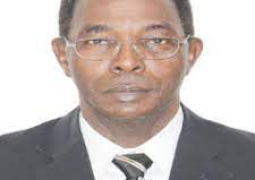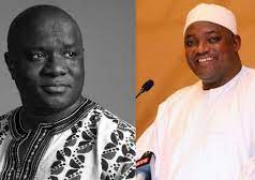A constitution is a legally drafted outlook that emanates from the political discourse in the country. It is both a legal and political document. It has been observed that the recent debates on the draft new constitution, which has been submitted to the executive by the CRC, are mainly centred on legal interpretation. The political context is often sidelined by analysts. It is therefore essential to first look at the document from the political perspective.
With due respect to the legal luminaries who shed light on the interpretation of certain clauses in the document, I think the arguments did not sufficiently reflect on the political dimensions of the draft. This was the danger of making CRC members consist mainly of lawyers. In order to properly understand the situation, one must have a framework of leading ideas. First, this constitution has been viewed by many as an expression of the will of The Gambian people. As such, it is not expected to be contaminated by the elitist views of its members or be influenced by external thinking. Naturally, a document of this nature must have its shortcomings according to how one sees it. But generally, it is not a bad document in my opinion. However, it has to be studied and narrated in The Gambian context.
Reflecting on the contentious issue of the Term Limit and when it should begin, it must be stated from the political point of view that this government came to office on a Coalition transition agreement which called for, among other things, the then President-elect to resign from office after serving a 3-year term. The equation changed when the President invoked the constitutional provision which called for a 5-year term limit. The coalition therefore could not counter the legal argument and had to accede to the rule of law. Furthermore, a political party called 2 NPP was formed under the leadership of Barrow. These two actions of the executive effectively ended the 2016 Coalition agenda in the country.
From the very beginning, Gambians, including the President-elect at the time, had vowed to end self-perpetuating rule in the country. Doing something that is diametrically opposed to the will of The Gambian people does not augur well with the consolidation of our democratic gains. It could be said that Barrow politically and morally offended The Gambian people by throwing the Coalition agenda into the ditch. It seems we have a political scenario driven by the competition for leadership only and not for the democracy-driven conviction of politicians. The maintenance of political order is essentially of fundamental importance in a democratic dispensation.
To do justice to the new constitution, the legal perspective as it relates to the Presidency cannot possibly be thrown out of balance. In my considered opinion, and without holding brief for the current President, the 2-term limit and its date of commencement should not be seen to discriminate President Barrow. The President is currently operating under the 1997 constitution which expires when the new constitution comes into effect. By implication therefore, the President’s term will come to an end after the new constitution comes into effect in 2021. Until the elections in 2021 prove otherwise for Barrow (voted out of office), he cannot be deprived of the right to enjoy the benefits of the 2021 new constitution. Legally speaking and in my opinion, the President’s 2-term limit should commence on the date the new constitution comes into effect. While Barrow may be perceived morally and politically weak for abandoning the coalition 2016 agenda, his rights under a new constitution cannot be tainted. Gambians must be fair and transparent in the current national discussions on the CRC draft constitution.
It was observed that suggestions were advanced to curtail certain powers of the President and subject these to the National Assembly oversight 3 functions, including calling for the vetting of executive decisions for appointments to top positions in Government, limiting the President’s ability to grant amnesty to prisoners, limiting his ability to nominate members of parliament, and preventing him from giving support to charitable causes among others. I believe effective leadership cannot be ensured if the powers of the President are unreasonably weakened by law. The Presidency should have the political and constitutional authority in running the affairs of the country as a mandate of the people. Perhaps, the concerns should have been expressed in the constitution for the President to use wisely his powers and decisions to the benefits of the people. This will be a safeguard against dictatorial tendencies in executive actions. Notwithstanding this, the President should be restrained from doing certain things in some aspects of governance, such as the President and First Lady giving support to charitable causes, and setting up a foundation while in office. This is because transparency and accountability are essentially of fundamental importance in the system of government. It must be stated further that it is one thing to give so much powers to the National Assembly in the new constitution and it is another thing whether such an institution has the capacity to absorb executive decisions in their proper context in terms of good governance. Perhaps therefore, the CRC document should have reflected on the need to strengthen the quality and standards of those who will represent Gambians in Parliament. In the context of Parliament, allegiance to the Nation should supersede allegiance to the Party.
It is of concern to many Gambians that this new final CRC document has detailed too many RIGHTS issues, some of which are considered an aggression on our religious beliefs and cultural practices. One wonders therefore how much of foreign influences or elitist mentality has gone into the drafting of these rights. Another issue of reflection is the question of Gambian citizenship. It has been stated that there is no more any distinction between citizenship by birth and citizenship by descent. This means if one’s grandparent is or was a citizen of The Gambia at the time 4 of one’s birth, automatically one becomes a Gambian citizen. The intention here is not clear to the public. Some observers say it is to cater for all foreigners who came and settled in The Gambia, some of them with their families. The distinction between bona fide Gambian citizens and non-bona fide Gambians should have been clearly defined. The need to exercise caution in giving out Gambian documents to foreigners cannot be overemphasized. We cannot pretend that we have not experienced the problems and the challenges faced by our electoral system, security sector, government system, and immigration system in the issuance of national documents to those who don’t qualify. It has been widely said that to obtain land and Gambian documents is the easiest means in West Africa. The Gambia should be reminded that The Republic of Ivory Coast went into a Civil War over citizenship rights and therefore should be careful about its immigration policy.
The final point of reflection is the lack of context on the issue of whether The Gambia is a Secular State. If the word Secular means freedom of religious belief and practice then it should not be left out in the new constitution. This needs to be clear. Whether it is true or false, many Gambians have heard that this CRC draft document drew some inspirations from the Kenya constitution. It should be of additional advantage to the country to draw lessons from the constitution of the Republic of Senegal which clearly talked about Secularism. One wonders whether in the consultations, the majority of Gambians objected to the idea of Secularism in our constitution.
In conclusion, a document of this nature must have its shortcomings having done these reflections. This document should therefore continue to go through the process through parliament and eventual referendum and adoption. Time is of the essence.
By: D.M. Badjie Political Scientist/Dev. Consultant





